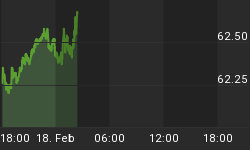Morgan Stanley has become the first U.S. bank to start measuring the emissions generated by the businesses it lends to and invests in, the bank said in a press release.
The bank will do this as a member of the Partnership for Carbon Accounting Financials—an organization set up last year to pursue the standardization of so-called carbon accounting in the banking and financial services sector in a bid to reduce the greenhouse gas emissions of the businesses banks lend to and invest in.
The group so far has 66 members that manage a combined $5.3 trillion in assets. In addition to reporting the emissions footprint of its loans and investments, the lender will also partake in the drafting of a carbon accounting and reporting standard for financial institutions alongside ABN Amro, Amalgamated Bank, and ASN Bank.
Morgan Stanley will be measuring and reporting financed emissions, or what the Greenhouse Gas Protocol classifies as Corporate Value Chain, or Scope 3, emissions. As the Protocol puts it, “The Corporate Value Chain (Scope 3) Accounting and Reporting Standard allows companies to assess their entire value chain emissions impact and identify where to focus reduction activities.”
Last year, Morgan Stanley released a report that noted the financial benefits of decarbonisation for businesses, identifying up between $3 and $10 billion in earnings potential in the decarbonisation drive. The bank did also note, however, that the road to net zero emissions would cost the world $50 trillion in investment by 2050. Related: High-Stakes COVID Vaccine Game Targeted By Russian Hackers
“We are excited to join PCAF and to support the important work they are leading to build a methodology for global banks’ efforts to track and measure climate change risks,” the Chief Sustainability Officer of Morgan Stanley, Audrey Choi, said.
Banks—especially U.S. banks—have drawn a lot of criticism recently because of their financial support for the fossil fuels industry, with various groups calling on them to stop funding oil and gas companies.
By Irina Slav for Oilprice.com
More Top Reads From Safehaven.com:
















